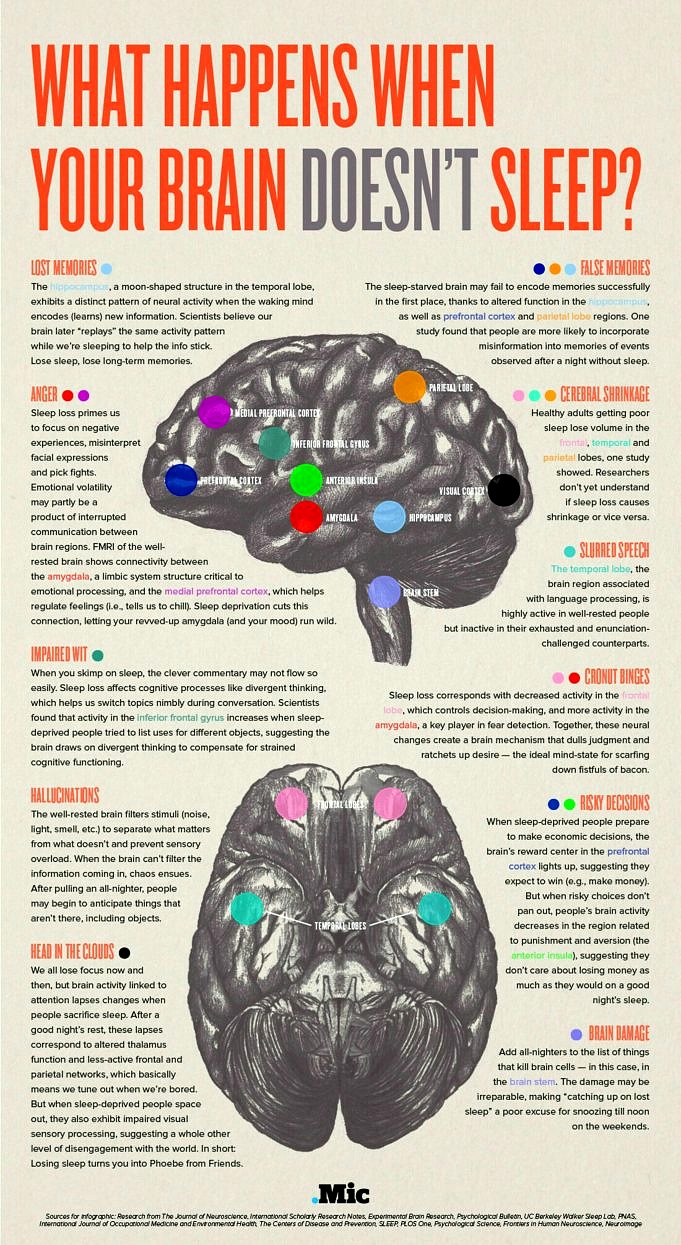A new study has found a way to predict if werevulnerableto the negativeeffectssleep loss has on our cognition.
Researchers at the University of Pennsylvania School of Medicine found that miRNAs, which are found in blood, can predict cognitive performance when we’re sleep-deprived.Another way to put it, our blood may now allow us to determine if we are at risk of specific sleep deprivation-related health problems.
In the study, 32 healthy adults participated in a five-day experiment. For the first two nights, they slept eight hours, followed by 39 hours of sleep deprivation (no sleep at all), and then enjoyed two nights of 8-10 hours of recovery sleep. Throughout the five days, participants were tested for attention, memory, and cognitive function. Blood samples were taken throughout to analyze their miRNAs.
Compared to before the study, 10 miRNAs showed expression level changes in participants who experienced sleep deprivation, and 18 miRNAs showed expression level changes in subjects when they experienced sleep deprivation and psychological stress.
Other findings from the study supported miRNAs being valid predictors of sleep loss vulnerability. The study found that 14 miRNAs were able to predict behavioral attention during sleep deprivation and seven predicted cognitive throughput performance. Ten miRNAs could reliably predict memory performance.
To understand what miRNAs are, lets start with RNAs. RNAs are molecules which play an important role in many biological functions, such as gene expression. From there, the miRNAs are a cellular RNA fragment that prevents the production of certain proteins.However, for the purposes of this article, all we really need to know is they are a biomarker found in the blood that has been shown to predict how sleep loss affects us.
These New Findings Will Have A Profound Impact On The Future Of Sleep Science.
This is not as easy as ordering new bloodwork at the doctor’s office to help you better understand how your sleep loss may affect you. Not yet at least.
Goel says that the next step will be to replicate the study to determine if similar results are achieved. The studies will not stop with miRNAs. Researchers will instead look for biomarkers that can predict sleep loss and connect cognitive function. The more biomarkers you have, the better you can collectively determine how vulnerable you will be if you lose your solid sleep.
Goel has a background in studying sleep loss and is interested in how there are such large, individual differences in how sleep deprivation affects people. In her words:
These variations are predictable and repeatable. If you bring back years later, theyll respond the same to sleep loss. This indicates that sleep loss can be inherited and has biological underpinnings.
If replication works, then the goal is to be able to predict if youre vulnerable or resistant to sleep loss before youre exposed to itby taking a blood test and looking at all your levels.
This is Goel’s ultimate goal. To discover biomarkers you can use this ahead of time to predict a future state. If you know youre affected by sleep loss, then you can take steps to mitigate the effects, whether you take a nap or drink caffeine.
It is not yet clear when this will happen, but we are on the lookout now for additional research that may support – or even contest – this scientific discovery.



